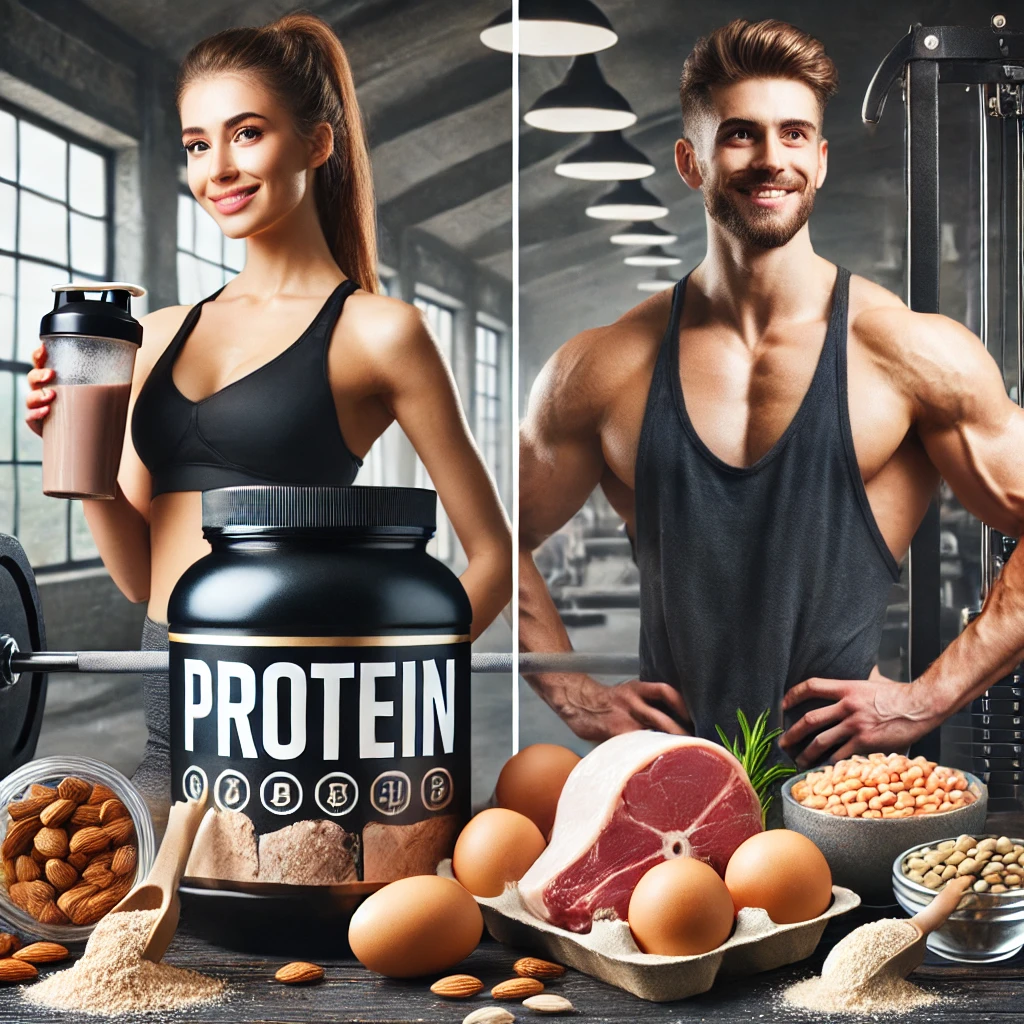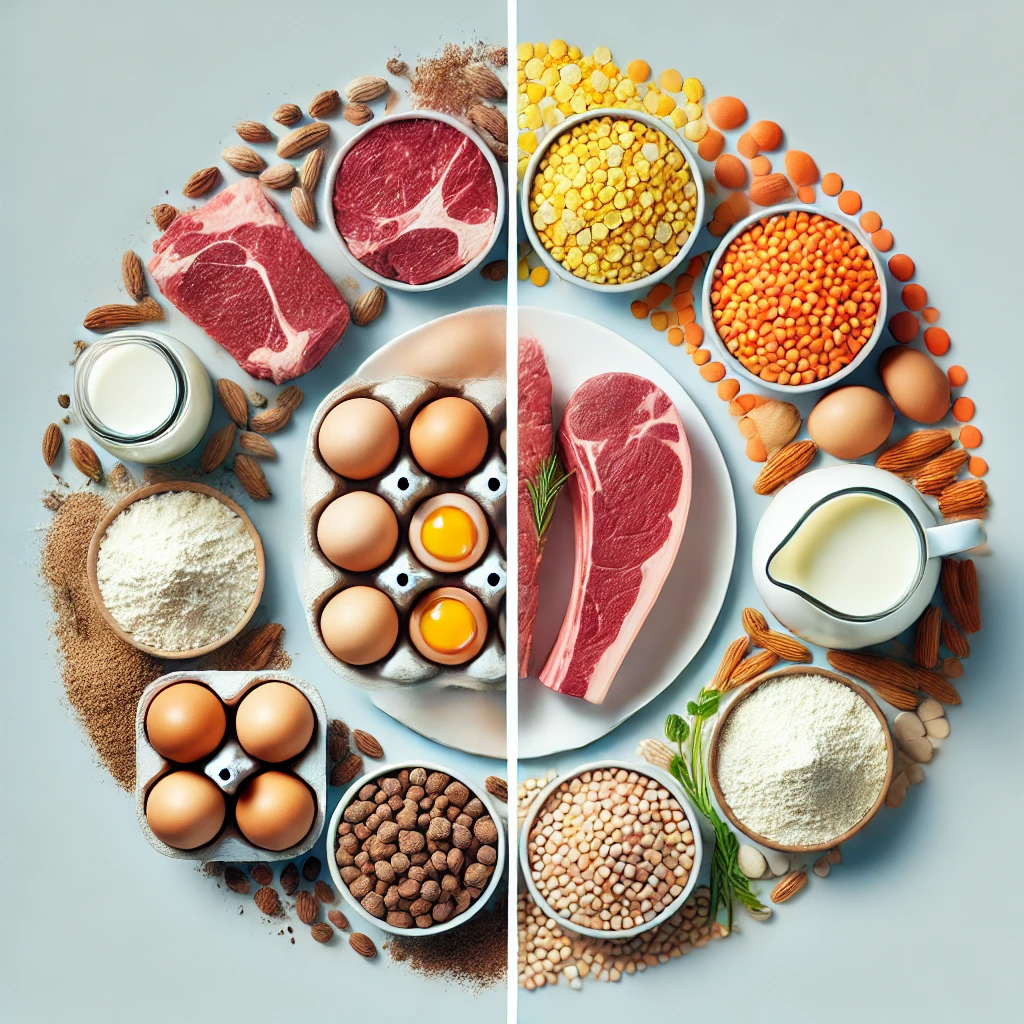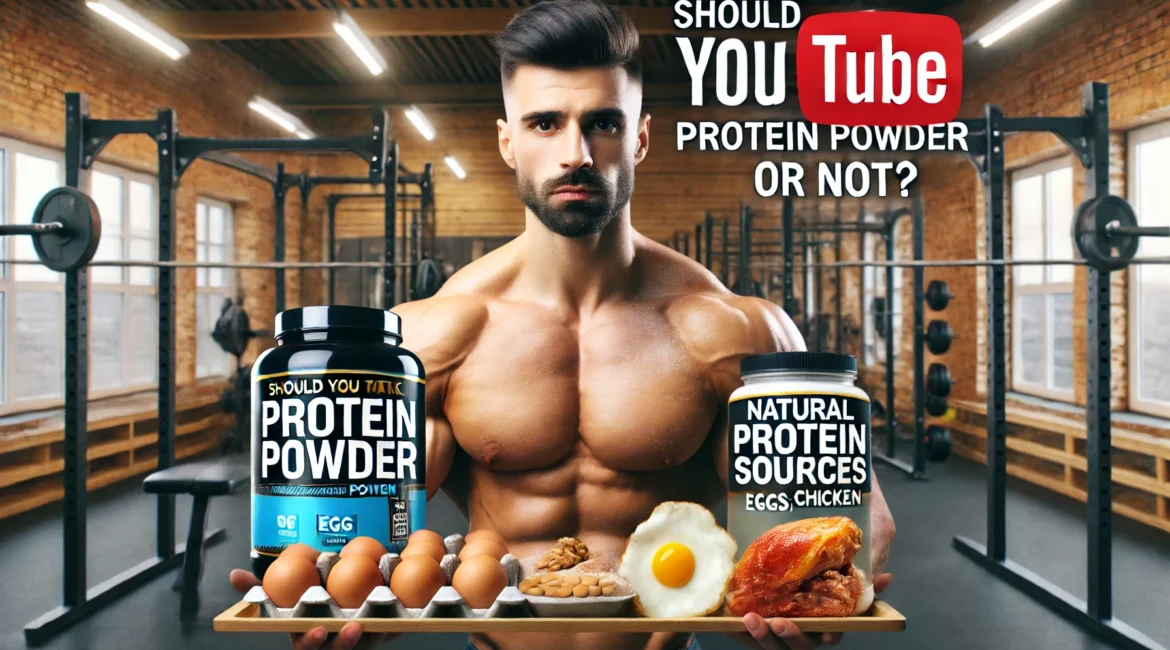Protein is an essential macronutrient that plays a crucial role in muscle growth, repair, and overall bodily functions. Whether you are an athlete, a fitness enthusiast, or just someone looking to maintain a healthy lifestyle, protein intake is a key consideration. With the rise of protein supplements, many individuals wonder whether they should take protein powder or rely on whole food sources. In this comprehensive guide, we will analyze the benefits, drawbacks, types, and factors to consider when deciding if protein powder is the right choice for you.
Table of Contents



What Is Protein Powder?
Protein powder is a dietary supplement designed to provide an easily consumable and concentrated source of protein. It is commonly used by athletes, bodybuilders, and those looking to meet their daily protein requirements more conveniently. Protein powders come in various types, including whey, casein, plant-based, and more, each offering unique benefits.
Benefits of Protein Powder
1. Convenient and Easy to Consume
One of the biggest advantages of protein powder is its convenience. Instead of preparing a protein-rich meal, a simple shake can provide the necessary nutrients in minutes.
2. Supports Muscle Growth and Recovery
Protein is essential for muscle repair and growth. After intense workouts, consuming a protein shake can help speed up muscle recovery and reduce soreness.
3. Aids in Weight Management
High-protein diets can promote satiety, helping with weight loss or maintenance. Protein shakes can serve as meal replacements or snacks to curb hunger.
4. Suitable for Individuals with Dietary Restrictions
For those who struggle to meet their protein needs due to dietary restrictions (such as vegetarians or those with lactose intolerance), protein powder provides a practical alternative.
5. Enhances Performance
Athletes who engage in rigorous training may benefit from additional protein intake to enhance endurance, strength, and performance.
Drawbacks of Protein Powder
1. Not a Replacement for Whole Foods
While protein powder is beneficial, it should not replace whole food sources of protein, which provide essential vitamins, minerals, and fiber.
2. Potential Digestive Issues
Some individuals experience bloating, gas, or stomach discomfort after consuming protein powder, especially those with lactose intolerance or sensitivities to certain ingredients.
3. Additives and Artificial Ingredients
Many commercial protein powders contain artificial sweeteners, preservatives, and fillers that may not be ideal for long-term health.
4. Cost Factor
High-quality protein powders can be expensive compared to whole food protein sources.
Types of Protein Powders
1. Whey Protein
Derived from milk, whey protein is rich in essential amino acids and is quickly absorbed by the body, making it ideal for post-workout recovery.
2. Casein Protein
Also derived from milk, casein protein is slow-digesting and is best consumed before bedtime to support muscle repair overnight.
3. Plant-Based Protein
Popular options include pea, hemp, rice, and soy protein, making them ideal for vegetarians, vegans, and those with dairy allergies.
4. Egg White Protein
Egg white protein is lactose-free and provides high-quality protein with a complete amino acid profile.
5. Collagen Protein
Collagen protein supports joint, skin, and hair health in addition to muscle recovery.
How to Choose the Right Protein Powder
- Check for Additives: Look for products with minimal ingredients and avoid artificial sweeteners and fillers.
- Consider Your Dietary Needs: Choose a protein source that aligns with your dietary restrictions and goals.
- Look for Third-Party Testing: Ensure quality and safety by selecting products that are tested for purity.
- Opt for High-Quality Sources: Grass-fed whey or organic plant-based proteins offer better nutritional value.
Who Should Take Protein Powder?
Individuals Who May Benefit from Protein Powder:
- Athletes and Bodybuilders: Need higher protein intake for muscle repair and growth.
- Busy Professionals: Those who struggle to prepare protein-rich meals.
- Vegetarians and Vegans: May lack adequate protein from plant-based diets.
- Older Adults: To prevent muscle loss and support overall health.
- Individuals with Medical Conditions: Those recovering from illness or surgery may require additional protein.
Who Should Avoid Protein Powder?
- Individuals Getting Enough Protein from Whole Foods: If you meet your daily protein needs through food, supplementation may not be necessary.
- People with Allergies or Sensitivities: Some protein powders contain allergens like dairy, soy, or gluten.
- Those on a Tight Budget: Whole food sources may be more cost-effective.
- Individuals with Kidney Issues: High protein intake may stress kidney function in those with existing kidney disease.
Natural Whole Food Protein Sources
- Animal-Based Proteins: Chicken, beef, fish, eggs, dairy products
- Plant-Based Proteins: Lentils, beans, quinoa, nuts, tofu
- Dairy-Based Proteins: Greek yogurt, cottage cheese
How to Use Protein Powder Effectively
- Post-Workout Shake: Mix with water, milk, or a smoothie for recovery.
- Meal Replacement: Combine with fiber and healthy fats for a balanced meal.
- Baking and Cooking: Add to oatmeal, pancakes, or homemade protein bars.
Conclusion
Should you take protein powder? The answer depends on your individual dietary needs, fitness goals, and lifestyle. While protein powder is a convenient and effective supplement, it should not replace whole foods. Understanding your protein requirements and choosing high-quality products can help you optimize your health and performance.
For personalized guidance, consult with a nutritionist or fitness expert at Corfit Gym to determine the best protein sources for your specific needs.

